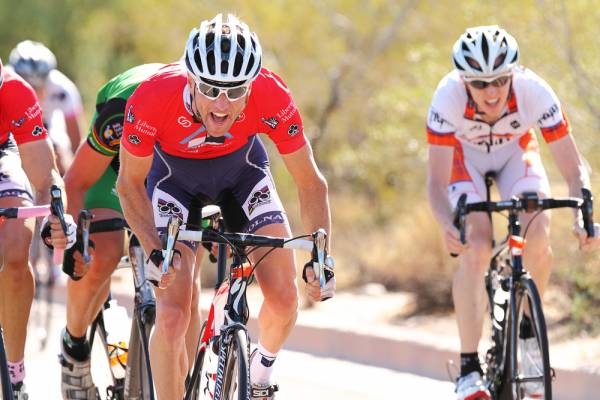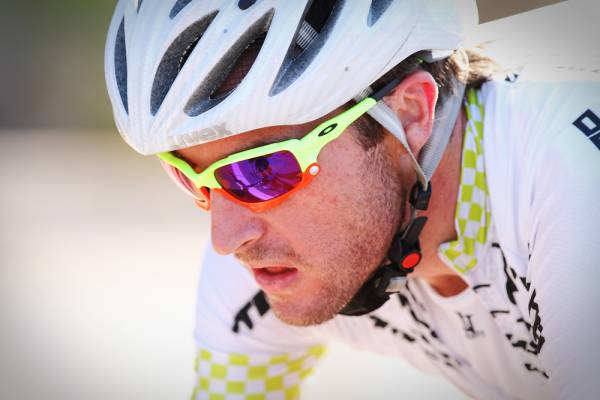Have you ever been really excited about an event or training session and found that then things went really well? This phenomenon was examined as long ago as 1908 and resulted in the classical Yerkes-Dodson model of arousal and performance.
This model shoes that at one extreme, where there is little arousal, performance is not so good. As arousal increases, then so does the resulting performance. But as the state of arousal increases further, it is possible for performance to decrease.
But, as an athlete, how do you know if you are under or over aroused? This article will teach you the signs for all three levels of arousal and give you some tips on how to be in the peak mind-set to get the most out of your event or training day.
RELATED: Arousal Management: The Science Behind Getting Mad at the Bar
The Effects of Anxiety and Confidence on Performance
A 2003 study by Tim Woodman and Lew Hardy demonstrated that anxiety had a negative impact upon performance, while self-confidence had a positive effect upon performance in a number of sports.
“As arousal increases, then so does the resulting performance. But as the state of arousal increases further, it is possible for performance to decrease.”
A state where arousal is counterproductive might occur when you feel too much pressure to do well in an event. This might also be linked with a feeling of anxiety, where you have a perception that a lot is at stake, new skills are required, preparation has not been adequate, or there are issues surrounding the event. A state of a productive amount of arousal might be a situation where you feel you really want to participate in an event and, as such, are looking forward to it.
Note: It is important to remember that we have many roles in everyday life, including family and work commitments, and these can influence our state of mental arousal, too. These can also cross over into our general feeling of arousal and can be to the benefit or detriment of our performance.
RELATED: Techniques for Controlling Competition Anxiety

Reaching the Optimum Level of Arousal
The challenge as athletes then becomes to reach the optimum level of arousal, without going too far. It’s easiest to start with how you might get near the optimum level. In this state you might:
- Feel positively excited about your event or training session and its outcome
- Feel in control
- Have generated a history of good progress up to this point
- Be in a pleasant environment or conditions to race or train in
- Have a plan and the sufficient time to execute it
“The challenge as athletes then becomes to reach the optimum level of arousal, without going too far.”
When you’re in a state of over arousal, you might:
- Experience feelings of inadequate preparation
- Feel uncomfortable
- Feel overwhelmed
- Fidget
- Experience excessive stomach activity
- Have last minute drama or concerns about a previous injury or the opposition
When in a state of under arousal, you might:
- Feel distracted
- Be physically ill at ease
- Feel tired
- Engage in social distractions
- Feel more like a spectator than a participant
- Deviate from planned activities
- Feel over confident

Strategies for Coping with Under or Over Arousal
- Remember to have fun and enjoy yourself. Sport is supposed to be fun. Think about the long-term benefits and your desire for the long-term outcomes.
- Simulate the event or session ahead of time. Rehearsal is a great way to alleviate anxiety about something on the horizon. If you have the opportunity, visit the event or training location or find out as much about it as possible. Try talking to other people who have done the event or similar activities before. Rehearse what you are going to do and the desired outcomes in your mind.
- Gather a set of like-minded positive people around you. Find people who can provide support and encouragement.
- Have a plan. Having a plan and ensuring you have everything ready will help reduce any last-minute drama at a training session or an event. Assign priorities to everything you have to do.
RELATED: Do Cartwheels: Why You Need Learning and Fun in Your Training
Winning is not the only indicator of success. Skill development, performance improvement, experience, and the benefits of health are all useful things to do, and “winning” needs to be kept in perspective. Any individual event or session is one part of a longer journey. Listen to your body and be prepared to adapt positively if the circumstances dictate.
References:
1. Association of British Cycling Coaches. Manual of Cycle Coaching. Accessed November 15, 2014.
2. Woodman, T. and Hardy, L. “The relative impact of cognitive anxiety and self-confidence upon sport performance: a meta-analysis”, Journal of Sports Sciences. 2003, 21,443-457.
Photos courtesy of Shutterstock.






